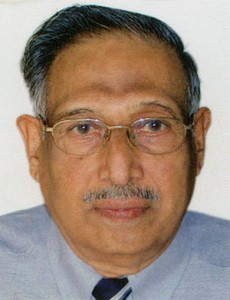Swami Vivekananda’s meeting with John Rockefeller is one of the lesser known facts about his stay in Chicago . The meeting has been documented although neither Vivekananda nor Rockefeller has written or apparently spoken , at least in public, about it. The impact of that meeting can only be inferred from subsequent actions.
It is said that opposites attract each other and that pairs of opposites produce great results. One could not have imagined a pair more unlike each other than Swami Vivekananda and John and Rockefeller in temperament, life style and social and cultural backgrounds. Rockefeller had brought up Standard Oil and was considered the richest man in the world and had all the material comforts he could have wished for. Vivekananada, on the other hand, was a penniless sanyasin who had renounced all material comfort but was in a position to give great spiritual energy to anyone who met or heard him.
After the Parliament of Religions in 1893, Vivekananda had started addressing in Chicago several small groups as well as large audiences on Indian philosophy and culture. His followers included clergymen, western thinkers and rich socialites. One of them was Emma Calve, well known French artiste who , in a state of depression, went to Vivekananda and experienced the soothing effect of his advice. She remained his follower for the rest of her life.
Rockefeller had heard about Vivekananda from a friend with whom the Swami was staying , but for some reason had avoided meeting the Swami. Then one day, on impulse, Rockefeller went into the house of his friend and brushing aside the butler, walked unannounced into Swamiji’s study. Vivekananda was in deep thought and did not even lift his face to see who had come. Then, looking at Rockefeller, he started telling him a great deal about his past, personal details unknown to anyone but Rockefeller himself. At the end Swamiji said that all the wealth he had accumulated was not for him, that he was only a channel and was expected to serve society. He said,” Why don’t you give back to society what you have earned?”
Rockefeller had been making donations on a small scale but was irritated that someone should advise him in this manner. He made it obvious by walking out of the room without even saying Goodbye.
Two weeks later, Rockefeller came back to Swamiji, this sometime on his own. He produced a piece of paper pledging a huge sum of money for a public cause and said, ““Well, there you are. “You must be satisfied now, and you can thank me for it.”
Madame Drinette Verdier, to whom this incident was narrated by Emma Calve, wrote in her Journal : Swamiji didn’t even lift his eyes, did not move. Then taking the paper, he quietly read it, saying: “It is for you to thank me”. That was all. This was Rockefeller’s first large donation to the public welfare.
It is not known what that cause was but some writers believe that it may well have been for the development of the University of Chicago initially founded by him four years earlier, in 1890. Needless to describe, the University has had an eventful impact on human thought.In research, It has produced 87 Nobel Prize winners, the largest for any university- including 8 current faculty.
The meeting between Swami Vivekananda and Rockefeller must have taken place sometime in 1894. Two years later, at the age of 57 Rockefeller decided that others should take over the day-to-day running of Standard Oil. He then devoted himself to philanthropy, giving away the bulk of his fortune to “do the most good as determined by careful study’ and to ‘promote the well lbeing of humanity”
If John Rockefeller revolutionized the petroleum industry, he also redefined corporate philanthropy in the united States. Fifteen years later, the Rockefeller Foundation was established. to “promote the well-being of mankind throughout the world.” .The Foundation pioneered the development of medical research, helped eradicate hookworm and yellow fever, and took far reaching initiatives in public health and education in both the U S and the less developed regions of the world.
Rockefeller died at the age of 98. He wrote sometime in his late seventies, “I am sure it is a mistake to assume that the possession of money in great abundance necessarily brings happiness. The very rich are just like all the rest of us; and if they get pleasure from the possession of money, it comes from their ability to do things which give satisfaction to someone besides themselves.”
On the joy of giving he wrote, “It should be a greater pleasure and satisfaction to give money for a good cause than to earn it, and I have always indulged the hope that during my life I should be able to help establish efficiency in giving so that wealth may be of greater use to the present and future generations.”
P S The Rockefeller Foundation”s website introduces the work of the Foundation thus:
“From funding an unknown scholar named Albert Einstein to accelerating the impact investing industry, the Rockefeller Foundation has a long tradition of enhancing the impact of individuals, institutions and organizations working to change the world. In today’s dynamic and interconnected world, The Rockefeller Foundation has a unique ability to address the emerging challenges facing humankind through a 100-year legacy of innovation, intervention and influence to shape agendas and inform decision making.”
I owe this story originally to Swami Jitatmananda of the Ramakrishna Mission whose speeches and conversations I have immensely benefited from .




















Join my Network